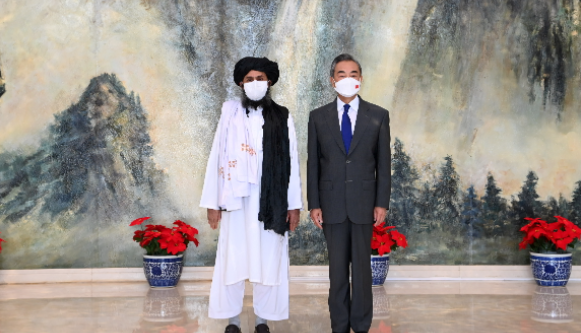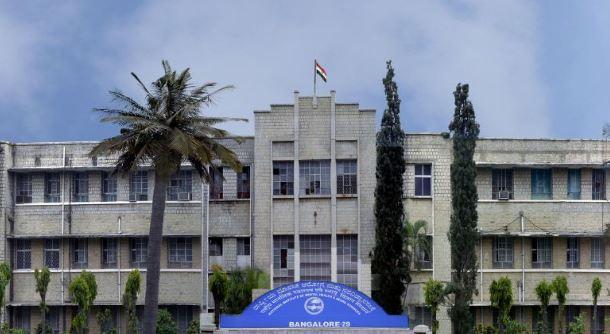China’s diplomatic Policy in Afghanistan

Bасkgrоund:-
- After a 20-year battle, US troops evacuated from Afghanistan’s airbase in July 2021, essentially completing their military activities in the nation.
- The withdrawal of the United States has shifted the battleground’s power balance in favour of the Taliban.
- With the US out of the picture, Beijing can offer Kabul what it wants most, that is political neutrality and economic investment, and Afghanistan can give China what it wants most, which is chances in infrastructure and industry development – sectors where China’s strengths are perhaps unrivalled.
- China’s diplomatic Policy in Afghanistan. China has long seen Afghanistan as a friendly neighbor with minimal diplomatic clout. China’s diplomatic and economic presence in Afghanistan has risen in recent years, with the country’s strategy shifting from controlled apathy to strategic participation.
Linkаges:-
The Economic Interests
- Lithium reserves are estimated to be in the billions of dollars. Afghanistan is most likely home to the world’s greatest lithium reserves.
- Lithium is a fundamental component in lithium-ion batteries, which are widely utilized in electric vehicles and the renewable energy industry.
- China is the world’s largest producer of lithium-ion batteries, and it may seek a long-term deal with the Taliban to develop Afghanistan’s vast untapped lithium riches in exchange for mining rights and ownership arrangements.
- Mineral deposits in Afghanistan are estimated to be worth up to $3 trillion. Gold, oil, bauxite, rare earths, chromium, copper, natural gas, uranium, coal, iron ore, lead, zinc, gemstones, talc, sulphur, travertine, gypsum, and marble are all abundant in Afghanistan.
- If China’s key Belt-and-Road Initiative (BRI) can be extended from Pakistan to Afghanistan via a Peshawar-to-Kabul highway, the initiative’s reach will be expanded.
Security Interests
- The East Turkestan Islamic Movement (ETIM) has roots in Afghanistan, according to the UN Security Council, and gained assistance from the Taliban and Al Qaeda in the 2000s.
- ETIM is a Uyghur Islamic extremist group based in Western China that aims to create an independent state called East Turkestan in the Xinjiang region.
- As a result, ETIM is a direct danger to China’s security and territorial integrity. China is concerned that Afghanistan could become a refuge for the Uyghur extremist organization, which could retaliate for widespread Uyghur mistreatment.
Сurrent Sсenаriо:-
- Following the withdrawal of US soldiers from Afghanistan, China has become one of the first countries to establish diplomatic ties with the Taliban, who have retaken authority in the crisis-torn country.
- China made its first contact with the Taliban in Kabul this week, less than a week after the insurgent group seized power in Afghanistan.
- Interestingly, China has kept a low profile in Afghanistan for the last two decades of US-led rule, quietly watching as the world’s longest war dragged on, exacting its toll in terms of both resources and people.
- . This engagement emanates from China’s economic and security interest in Afghanistan.
- Beijing will acknowledge the Taliban and look for methods to persuade them to pay attention to China’s security concerns.
- China would take the opportunity to benefit from Afghanistan’s enormous mineral riches and include Afghanistan in its Belt and Road Initiative in the long run.
- It aims to be seen as a powerful regional, and perhaps even a global, player, which has the potential to resolve the problem of the longest-standing insurgency South Asia has ever witnessed
Imрасt:-
Impact of this engagement on India
- A new BRI route through Kabul would make India’s reluctance to join the initiative less significant.
- With China-Taliban collaboration, a new regional geopolitical axis between China-Pakistan-Taliban could emerge, potentially harming India’s interests.
- China’s hegemony in Afghanistan will stymie ambitions to connect Central Asia via Afghanistan.
What does it mean for China
- This would open up a significantly shorter land path for Chinese commodities to reach Middle Eastern markets faster and more conveniently and improve the economy of the Country.
- Pakistan, China’s closest regional ally, has long been the Taliban’s primary host and backer, providing them with an additional sphere of influence, albeit one they haven’t always been ready or able to wield effectively.
- However, in the next months, Beijing will be concentrating its diplomatic efforts in the region on securing bilateral interests in Afghanistan and dealing with the impact from recent events.
Curated by : Meghna. Manoj








